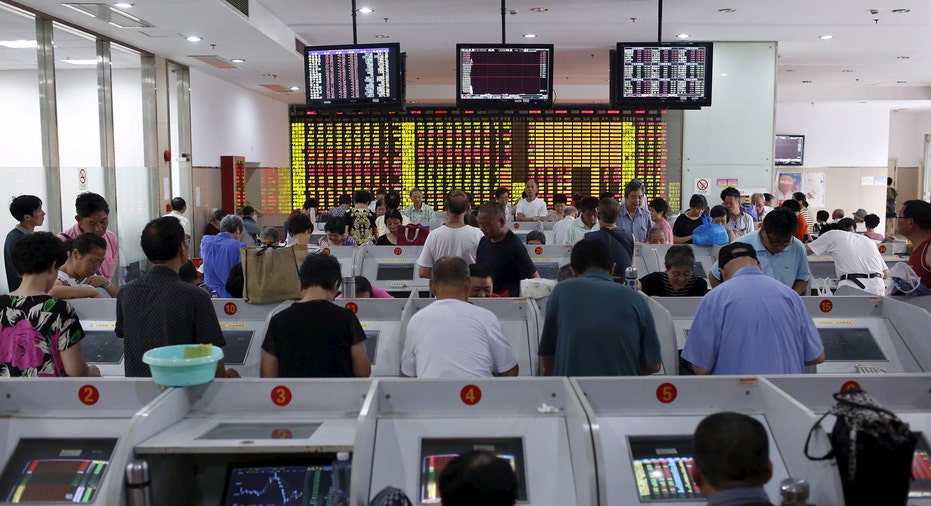China Shares Suffer Biggest Monthly Drop in Seven Years

Chinese shares closed sharply higher on Friday, recovering some of the week's losses, but still recorded their biggest monthly fall in about seven years, which has knocked 12 trillion yuan ($1.8 trillion) off the value of its benchmark indexes.
The Shanghai Composite Index closed up 3.1 percent, but it lost twice that over the week and 22.6 percent since the beginning of January, its worst month since October 2008, when global financial markets were sent into a tailspin after the collapse of Lehman Brothers bank.
The CSI300 index of the largest listed companies in Shanghai and Shenzhen ended up 3.2 percent for the day, but lost 21 percent for the month, its biggest decline since August 2009.
Trading was light throughout the month, as many investors are giving the market a wide berth, burnt not just by January's slump, which has taken indexes back to 2014 levels, but also last summer's 40 percent crash.
Beijing orchestrated a "National Team" response to the previous crash, taking regulatory action to arrest the selling and urging state-linked buyers to support the market, but there has been little sign of that in January.
"Market bulls have failed to organise meaningful resistance, the 'National Team' didn't inspire investors, while speculators chose to stand on the sidelines," said Zhang Mingyu, chairman of hedge fund house Shanghai YJ Investment Management Co.
"The market has been overwhelmed by gloom and looks like a bottomless pit," he added.
China's faltering economic growth, which slowed to a 25-year low last year, is giving investors pause, putting pressure on the yuan currency, and encouraging capital to flow out of the country.
The Finance Ministry said on Friday its fiscal revenue grew 8.4 percent last year, its slowest pace since 1988, but its expenditure jumped 15.8 percent as it increases spending to cushion the slowdown.
YUAN FEARS ON HOLD
At the beginning of the month, the yuan was of greater concern to investors than fragile Chinese stocks after the People's Bank of China (PBOC) spooked markets and emerging market rivals with its second sharp depreciation in the currency in six months.
It has since calmed fears of an imminent and much larger devaluation by holding the yuan's daily midpoint rock steady day after day, though many analysts still suspect the currency will be allowed to trickle lower over time.
The PBOC has also kept the banking system flush with cash, pumping out a huge 690 billion yuan this week to avoid a liquidity crunch ahead of the Lunar New Year celebrations beginning in early February.
Late on Thursday, the central bank announced it would conduct more liquidity operations than usual between Jan. 29 and Feb. 19 to cover the holiday period.
In the latest move to stem pressure on the currency from capital flight, the authorities on Thursday asked several domestic funds to postpone issuing new outbound investment products, sources told Reuters.
Premier Li Keqiang also phoned International Monetary Fund (IMF) chief Christine Lagarde to pledge Beijing would keep the yuan "basically stable" and improve communication with financial markets on the currency.
"The Chinese government has no intention to promote exports through currency depreciation, nor will it launch a trade war," Li told Lagarde in the call, according to remarks published on a central government website.
Likewise, speculation that Hong Kong might be forced to give up its peg to the U.S. dollar has waned in recent days.
Ratings agency Moody's on Friday said it believed Hong Kong's large fiscal and foreign-exchange reserves would allow policy makers to handle any pressure on the peg.
(Writing by Wayne Cole and Will Waterman; Editing by Shri Navaratnam and Ian Geoghegan)



















